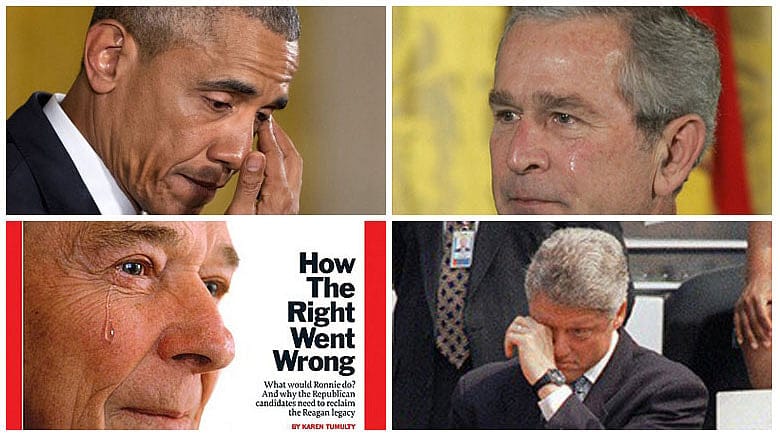The Crying Game: when politicians shed tears

"Strong men also cry….strong men, also, cry." – The Big Lebowski
BOSTON – Weepy politicians aren't all that unusual, yet President Barack Obama's tears on Tuesday as he announced executive orders to tighten gun controls put social media on hyperdrive while images of the tracks of his tears drove nightly newscasts.

